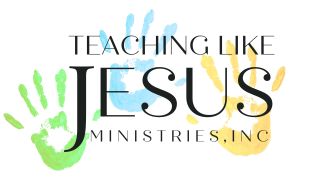Orphans Among Us: Evaluating the Ministry Needs of Children in Foster Care
There's a crisis in American. Over 500,000 children nationwide are being raised in the foster care system.[1] The largest state in the nation, California, has the highest number of children in foster care—approximately 105,000. Many of these children are black and Hispanic, and many are physically or emotionally disabled.
African American children are significantly over-represented and constitute 40-50% of those in foster care. Although only 12% of the overall United States population is black, one-third of all foster care children are African American. These are the most difficult children to place in foster or adoptive homes. As a result, black children remain in the system longer[2] averaging 10 years or more and represent the largest proportion of children in out-of-home care nationally.[3] The result: too many African American children grow up institutionalized.[4]
Why are children in the system? The answer is threefold: abandonment, abuse, and neglect. Abandonment is desertion by a parent or primary caregiver who has neither made provisions for childcare nor has any apparent intention to return to take care of his/her child. Abuse and neglect encompass physical, sexual, or emotional maltreatment by a parent or caretaker who is responsible for the child's welfare—food, clothing, shelter.[5]
Of the total number of children in the system, almost half or 48% are living with relatives in what’s termed “kinship foster care”. In this mutual arrangement, once the problem that caused the separation from the birth parent/s is resolved, children are returned to their birth family.
Unfortunately, many children do not enjoy kinship foster care and will never be reunited with their families. The result is that every day throughout the United States, 3,000 children need permanent adoptive families and/or connections with adults that will last once they are emancipated from the system. In Los Angeles, 500 children are immediately available for adoption today.
The church has a mandate to help: "External religious worship (religion as it is expressed in outward acts) that is pure and unblemished in the sight of God the Father is this: to visit and help and care for the orphans and widows in their affliction and need, and to keep oneself unspotted and uncontaminated from the world," (James 1:27 Amplified Version).
African American children are significantly over-represented and constitute 40-50% of those in foster care. Although only 12% of the overall United States population is black, one-third of all foster care children are African American. These are the most difficult children to place in foster or adoptive homes. As a result, black children remain in the system longer[2] averaging 10 years or more and represent the largest proportion of children in out-of-home care nationally.[3] The result: too many African American children grow up institutionalized.[4]
Why are children in the system? The answer is threefold: abandonment, abuse, and neglect. Abandonment is desertion by a parent or primary caregiver who has neither made provisions for childcare nor has any apparent intention to return to take care of his/her child. Abuse and neglect encompass physical, sexual, or emotional maltreatment by a parent or caretaker who is responsible for the child's welfare—food, clothing, shelter.[5]
Of the total number of children in the system, almost half or 48% are living with relatives in what’s termed “kinship foster care”. In this mutual arrangement, once the problem that caused the separation from the birth parent/s is resolved, children are returned to their birth family.
Unfortunately, many children do not enjoy kinship foster care and will never be reunited with their families. The result is that every day throughout the United States, 3,000 children need permanent adoptive families and/or connections with adults that will last once they are emancipated from the system. In Los Angeles, 500 children are immediately available for adoption today.
The church has a mandate to help: "External religious worship (religion as it is expressed in outward acts) that is pure and unblemished in the sight of God the Father is this: to visit and help and care for the orphans and widows in their affliction and need, and to keep oneself unspotted and uncontaminated from the world," (James 1:27 Amplified Version).
References:
[1] Dr. Phil, May 25, 2009
[2] Hough, R. L., Landsverk, J.A., McCabe, K. M., Yeh, M., Ganger, W.C., Reynolds, B. J. (2000). Racial and ethnic variations in mental health care utilization among children in foster care. Children’s Service: Social Policy, Research, & Practice. 3(3), 133-146.
[3] Smith, C. J. & Devore, W. (2004). African American children in the child welfare and kinship system: From exclusion to over inclusion. Children and Youth Services Review. 26(5), 427-446.
[4] Singleton, S. & Roseman, F. (2004). Minister’s perceptions of foster care, adoptions, and the role of the black church. Adoption Quarterly. 7(3). 79-91.
[5] www.cakidsconnection.com
Excerpt from paper, "Orphans Among Us: Evaluating the Ministry Needs of African American Children in Foster Care" presented at the Society for Children's Spirituality Conference: Christian Perspectives, Concordia, Illinois (2009). www.childspirituality.org. Published in: Understanding Children's Spirituality: Theology, Research, and Practice. Kevin E.Lawson, Ed. (2012). Cascade Books.

